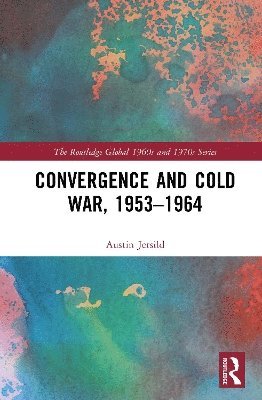Kommande

2639:-
The academic debate in Western social science about the growing "convergence" or similarities between American and Soviet society acquired political significance in the diverse relationships that made up the global Cold War. Convergence and Cold War, 1953-1964 explores the consequences and challenges of convergence through a discussion of US-Soviet relations, Sino-Soviet relations, and East-South relations. The book argues that the debate about convergence was a debate about the character of the broader Cold War itself, and the background to the more recent experience of contemporary globalization and its shared practices and norms. The volume begins by addressing how Americans debated the prospect of a less threatening socialist world shaped by the challenges of industrial modernity, whilst the Soviets hoped to imitate Western standards of living alongside developing supposedly more elevated forms of consumption, leisure, culture, trade and economic exchange. The second section analyses the way supporters of Chairman Mao in China associated the socialist bloc engagement with the West as an example of its deterioration and dangerous abandonment of socialist values and practices. The closing chapters examine how the Chinese communicated their frustration with the Soviets and East Europeans to postcolonial states in the Global South. Jersild unpacks this through a case study of Guinea-Conakry, who posed questions about the common practices and policies of the superpowers. This volume is a valuable resource to students and scholars of the Cold War and International Relations, as well as all those interested in postcolonial studies and the history of globalization.
- Format: Inbunden
- ISBN: 9781032691930
- Språk: Engelska
- Antal sidor: 248
- Utgivningsdatum: 2025-07-31
- Förlag: Taylor & Francis Ltd

